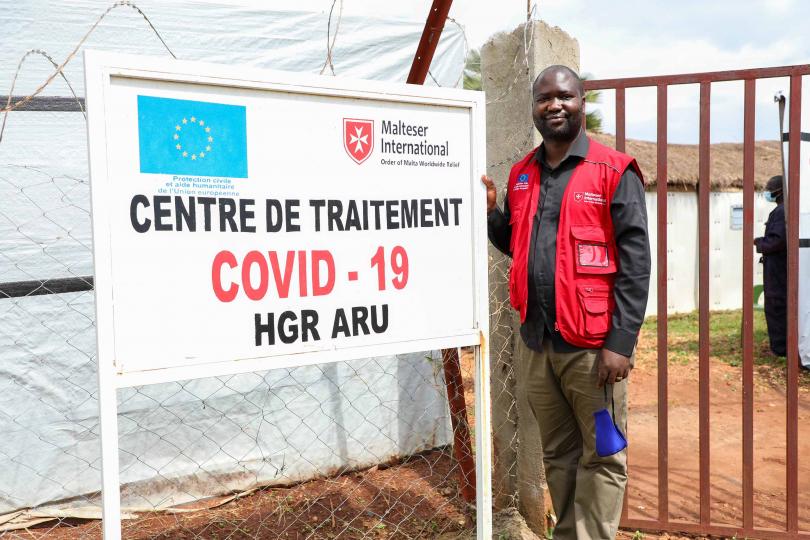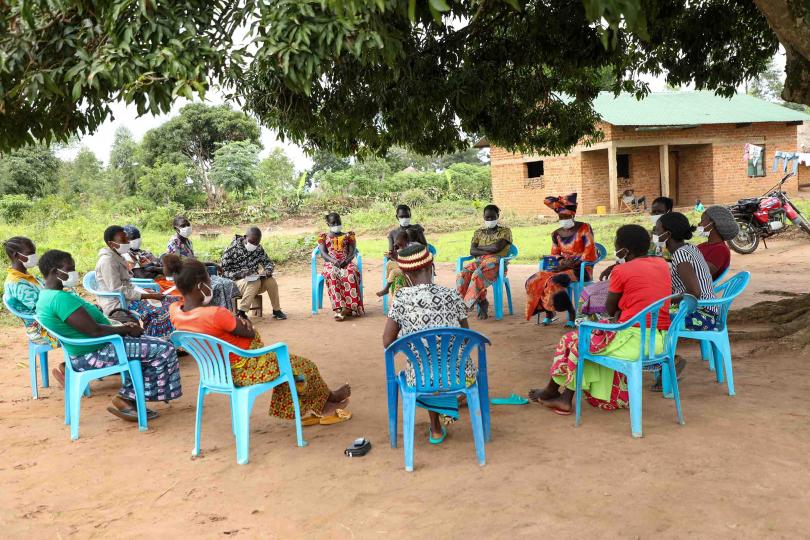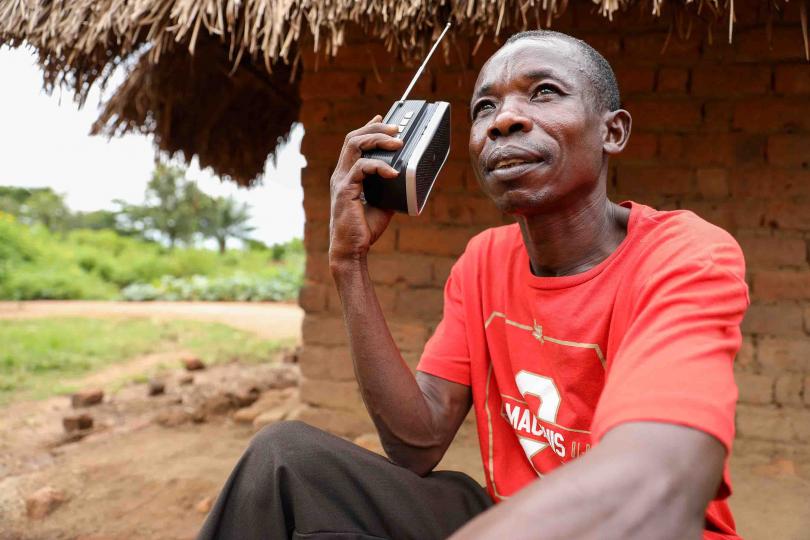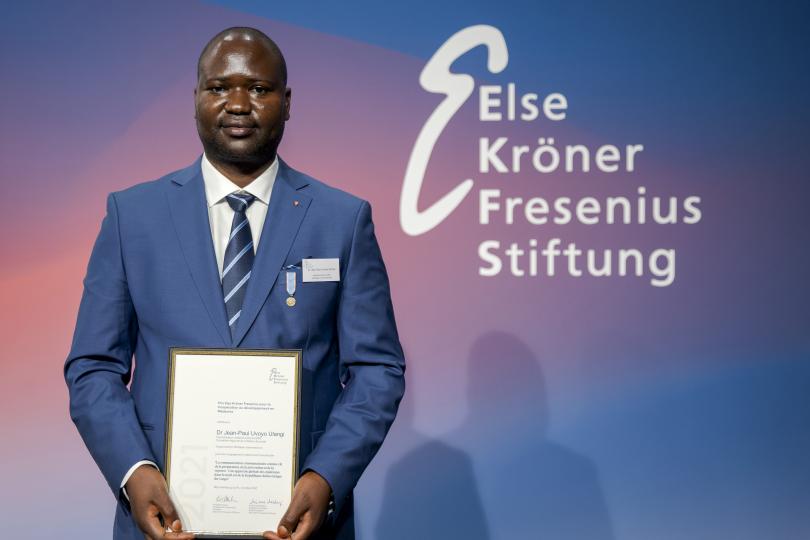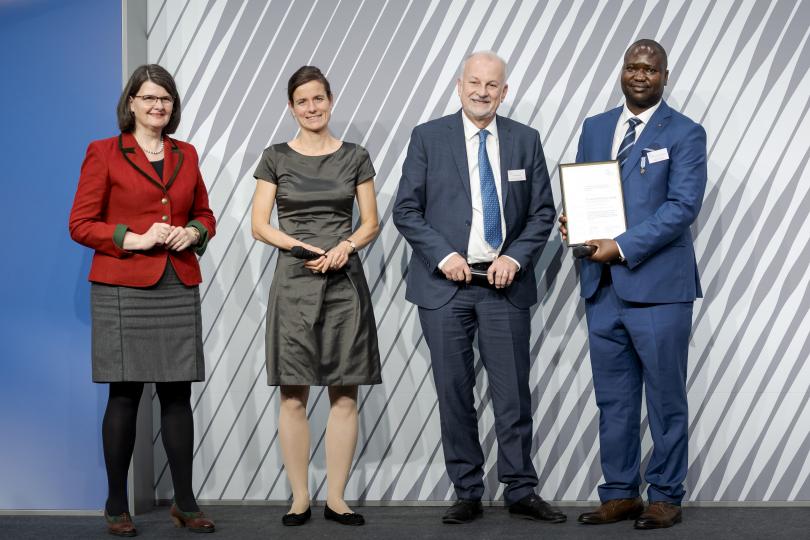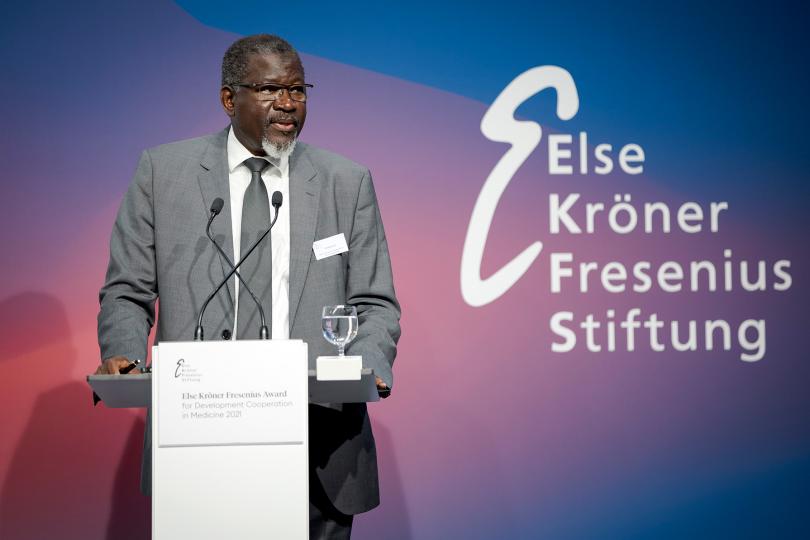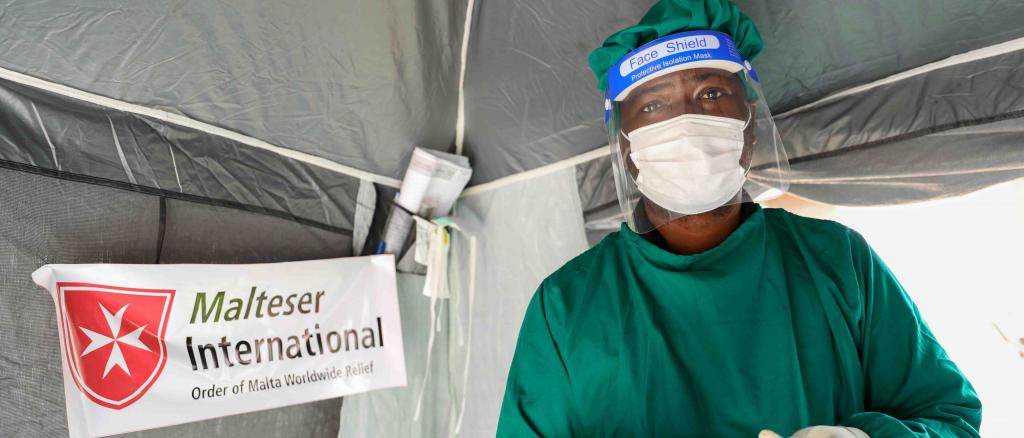
This year the Else Kröner Fresenius Award for Development Cooperation in Medicine goes to Malteser International together with Dr. Jean-Paul Uvoyo Ulangi, Country Medical Coordinator of the Democratic Republic of the Congo and Regional Health Advisor for the project “Community communication as key for Preparedness, Prevention and Response – A comprehensive approach toward epidemics in the northeast of the DRC”. The award was presented on October 28, 2021 at the German Federal Ministry for Economic Cooperation and Development (“BMZ”) in Berlin. The award ceremony was broadcasted digitally this year due to the Covid-19 pandemic.
Outbreaks of epidemic diseases arise repeatedly in the Democratic Republic of the Congo. From 2018 to 2020 the region combated the world’s second-largest outbreak of Ebola. The targeted objective of the award-winning project is to reduce the morbidity and mortality rates of epidemics and limit the spreading of them through effective preparedness, inclusion of the population, early detection and rapid response in seven health zones in the provinces of Ituri and Haut-Uélé. The project is based on a close partnership with the healthcare stakeholders in the project region and places the focus on the population.
The projects is based on the following five pillars:
Communication with and inclusion of the population:
Rumors and mistrust toward healthcare facilities and relief organizations circulated among the population in the course of earlier outbreaks of epidemics. With the introduction of P-FIM (the people first impact method), a new participatory approach, the people obtain a say and can join in designing what goes on. In the case of this community-based approach the people’s needs are assessed and messages are developed jointly with them. Their purpose is to inform the population door-to-door and via radio, flyer or poster about potential paths of infection and contagion processes, and to gain the population’s trust.
Early warning system:
Another one of the project’s pillars is an efficient early warning system that is equally anchored within the community. Healthcare aides from the community have been trained by Malteser International to find indications of epidemics at an early stage – for instance the frequent occurrence of dead rodents. As a consequence, outbreaks of diseases such as the plague were able to be detected early on.
Preparedness:
Malteser International supports the regions in the preparation and strengthening of public healthcare. Each healthcare zone has developed emergency plans for the outbreak of an epidemic in its region and has emergency supplies at its disposal. Medicines, medical equipment and a mobile medical isolation station toward rapid isolation in the event of epidemics stand ready in the healthcare zones.
Prevention:
As a result of its years of experience, Malteser International has developed guidelines for the “Infection Prevention and Control” (IPC) sector which are implemented at the healthcare facilities in the project region. Healthcare personnel are schooled in accordance with these guidelines, inter alia on hygiene practices and on dealing with infectious diseases and epidemics. Following prior needs assessment, items including sterilizers, personal protective equipment (PPE), cleaning materials etc. are issued to the facilities in order to minimize the risk of infection for staff and patients.
Case management and treatment possibilities:
The healthcare staff was trained in the proper handling of a suspected case or a patient who has actually gotten sick. The effectiveness of these measures became clear during the most recent outbreaks of Ebola and the plague in the region: Since the hospital in the Ariwara health zone was prepared, the case of Ebola was duly triaged and isolated using all appropriate means toward preventing any infection. No further infection occurred due to this case.
Malteser International wants to use the money from the award to reinforce the resiliency of the healthcare system in preparing for and responding to epidemics: through the “One Health” approach, through strategic stocks of materials toward improving response capability, by strengthening the capacities of healthcare personnel in the area of monitoring, and by involving the population in the prevention and response to zoonotic diseases such as the plague, rabies or brucellosis.
In this interview, award winner Dr. Jean-Paul Uvoyo Ulangi gives a deeper insight into the project.
You can obtain more information in the Press Release from Oct. 29, 2021.
